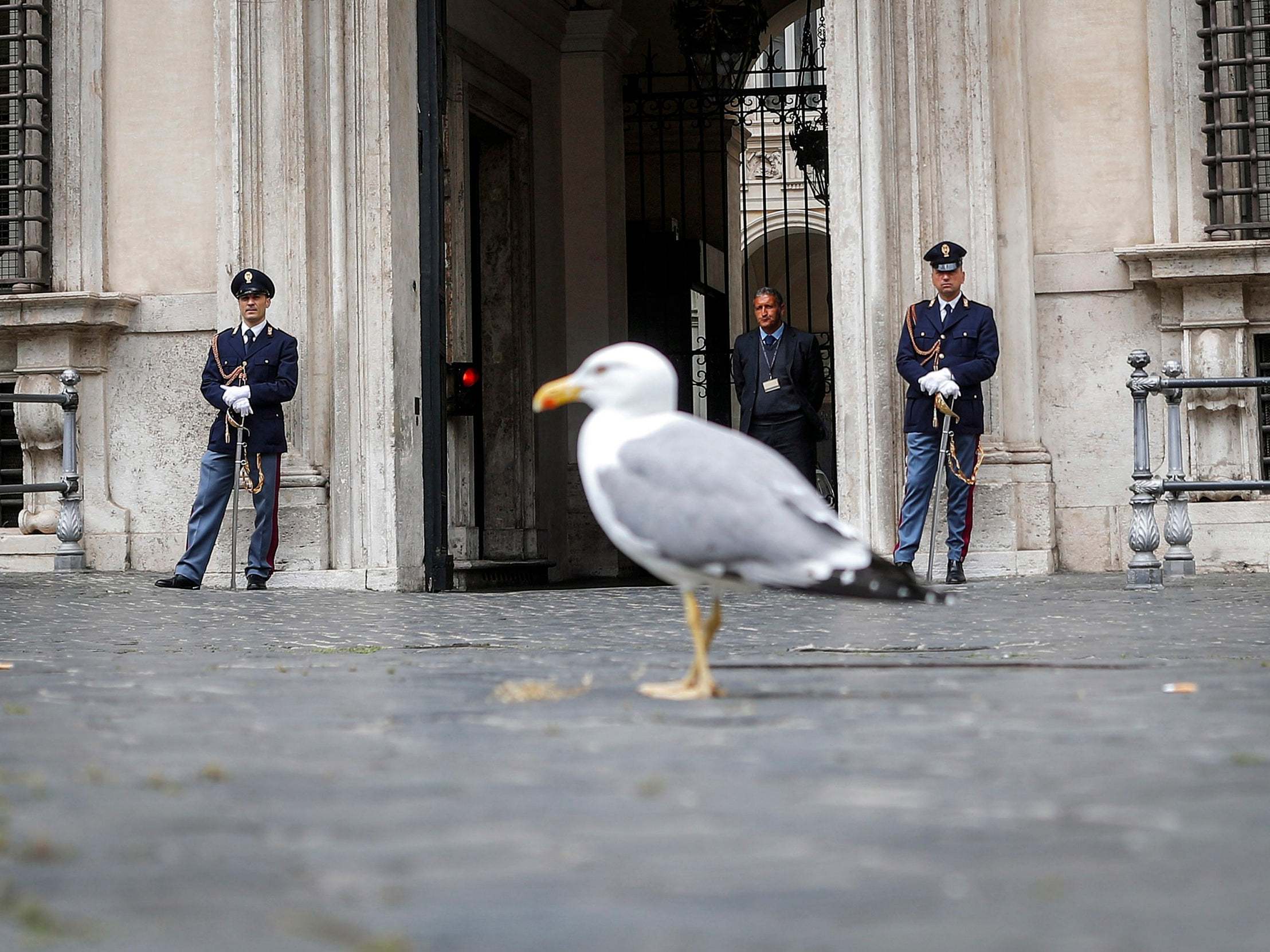Rome’s seagulls hunt rats and pigeons as lockdown starves them of scraps
‘They are catching mostly pigeons but also swallows and black birds... Luckily they are also eating rats,’ says zoologist

Your support helps us to tell the story
From reproductive rights to climate change to Big Tech, The Independent is on the ground when the story is developing. Whether it's investigating the financials of Elon Musk's pro-Trump PAC or producing our latest documentary, 'The A Word', which shines a light on the American women fighting for reproductive rights, we know how important it is to parse out the facts from the messaging.
At such a critical moment in US history, we need reporters on the ground. Your donation allows us to keep sending journalists to speak to both sides of the story.
The Independent is trusted by Americans across the entire political spectrum. And unlike many other quality news outlets, we choose not to lock Americans out of our reporting and analysis with paywalls. We believe quality journalism should be available to everyone, paid for by those who can afford it.
Your support makes all the difference.Seagulls in Rome are “returning” to their natural status as predators, hunting down rats, pigeons, and other smaller birds as the lack of humans on the streets mean no food scraps are to be found.
Italy has been in lockdown for nearly two months to slow the spread of coronavirus, since 9 March. All restaurants and cafes have closed and the capital’s streets have been devoid of the humans the gulls usually pick scraps of food up from.
Bruno Cignini, a zoologist from the Rome University Tor Vergata, told local newspaper Corriere della Sera the gulls “are going back to being predators”.
“They are catching mostly pigeons but also swallows and black birds. They’re also going after the fish in the Tiber,” he said.
“Luckily, they are also eating rats. Animals are changing their habits as we change ours.”
Eating pigeons and rats are not a new dietary choice for the seagulls, but they usually peck at the prey in the form of road kill. Now, the species known as Yellow-Legged Gulls are honing their killer instincts for survival.
The seagull population in Rome has grown to the tens of thousands and they are largely considered aggressive pests who dive bomb unsuspecting tourists and snatch food straight out of the hands of pedestrians.
The city’s rubbish problem – branded a “crisis” by Rome’s doctors last year – attracts the gulls and other unwelcome animals such as wild boar, coypu – a South America rodent originally introduced to Italy to be farmed for their fur – and parakeets, making it a health hazard.
Last year, Matteo Salvini, former deputy prime minister and head of centre-Right League party, said the gulls were “the size of pterodactyls”.
He made the comments in a Twitter row with Rome’s mayor Virginia Raggi, who is from the anti-establishment Five Star Movement, after she accused him of not providing the capital with additional police.
Join our commenting forum
Join thought-provoking conversations, follow other Independent readers and see their replies
Comments